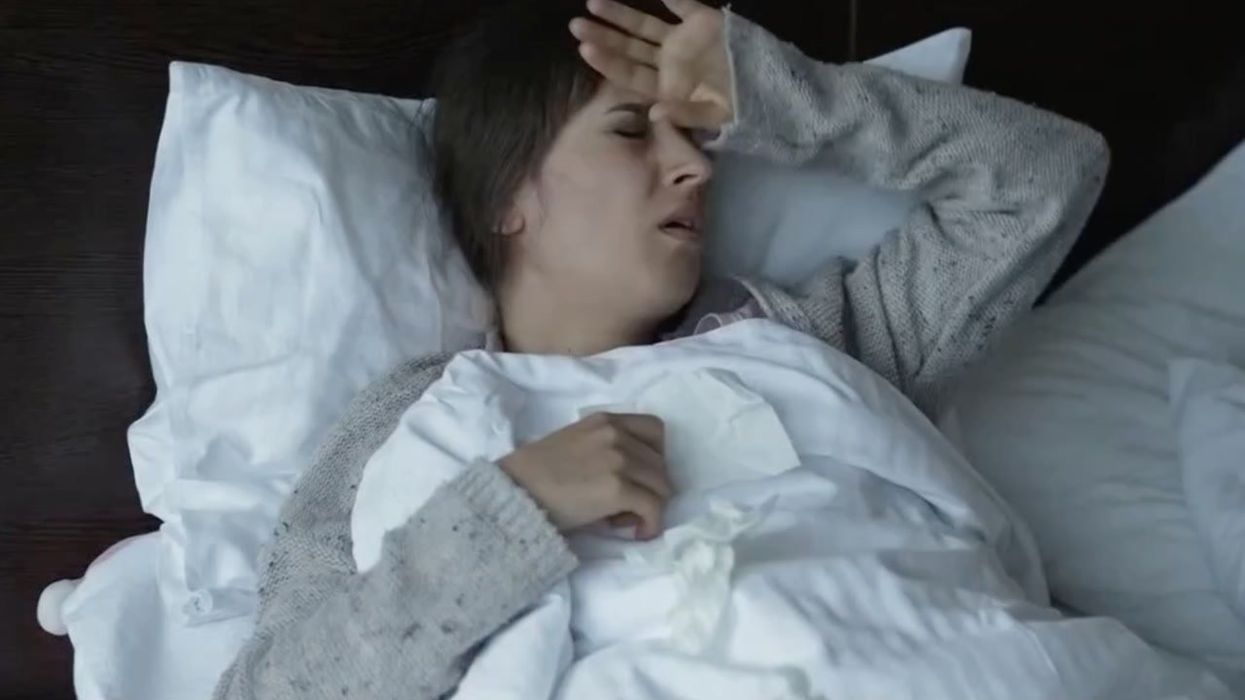Liam O'Dell
Dec 30, 2023
US experiencing increase in COVID, flu and RSV
Scripps News / VideoElephant
A loss of taste and/or smell was once one of the main indicators that you may have come down with a case of Covid-19, but as a new “variant of interest” known as JN.1 (a “descendant” of the omicron strain) gains “increasing prevalence” in the UK, more unusual symptoms are emerging instead.
The latest dataset from the Office for National Statistics, based on a sample survey of more than 27,000 people between 7 and 13 December, has revealed that a loss of smell or taste was only reported in 3 per cent and 2 per cent of individuals respectively.
A cough remains a common tell (almost 23 per cent), with a runny nose or sneezing being the highest reported symptom (31 per cent), but individuals also reported headaches (20 per cent), weakness or tiredness (close to 20 per cent), muscle aches (almost 16 per cent) and a sore throat (13 per cent).
Alongside these, the most surprisingly common symptoms to emerge are trouble sleeping and worry or anxiety – both of which were reported by around 10 per cent of the sample.
The most up-to-date data from the UK Health Security Agency (UKHSA) states that the estimated prevalence of coronavirus in England and Scotland as of 13 December is 4.2 per cent – which means approximately 1 in every 24 people could test positive for Covid-19 at present.
The UKHSA, which replaced Public Health England in 2021, is currently calling on eligible individuals to receive a “seasonal” vaccine before 31 January.
These include those who will be at least 65 years old as of 31 March; those at increased risk between the ages of six months to 64 years; those living in a care home for older adults; frontline health or social care workers; carers aged 16 to 64; and those aged between 12 and 64 who live with someone who has a weakened immune system.
Professor Steven Riley, the UKHSA’s director general for data and surveillance, said: “At this time of year, the cold weather, shorter days and increased socialising mean that the potential for transmission of respiratory viruses like Covid-19 is particularly high.
“This, as well as the possible impact of new variants, means it’s not unexpected to see cases increasing.
“If you are showing symptoms of Covid-19 or other respiratory illnesses, you should try to limit your contact with other people as much as possible, especially those who are older or more vulnerable.
“It’s important that those people who are most at risk of severe illness and hospitalisation as a result of Covid-19 come forward for their seasonal vaccination to make sure they have the best possible protection this winter.”
Jabs can be booked through your GP or with a local NHS vaccination service, or you can visit a walk-in vaccination site.
Sign up to our free Indy100 weekly newsletter
Have your say in our news democracy. Click the upvote icon at the top of the page to help raise this article through the indy100 rankings.
Top 100
The Conversation (0)














